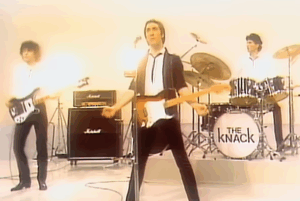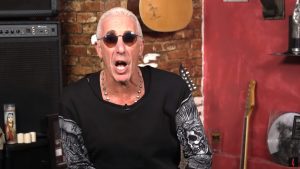Mick Jagger’s Most Controversial Interview In 1978

via mrtodayvideos6 / YouTube
Mick Jagger has never been just another frontman. As the face of The Rolling Stones, he embodied the spirit of rebellion and sensuality that defined an entire era. His swagger, stage presence, and unmistakable voice elevated him beyond the world of music into the realm of cultural icon. By 1978, Jagger was already a living legend, unafraid of criticism and seemingly addicted to provocation.
Unlike many of his contemporaries, Jagger refused to soften with age. Instead, he doubled down on his wild persona, embracing every ounce of controversy that came his way. Whether through lyrics, interviews, or performances, he thrived on pushing buttons and breaking boundaries. This is part of what kept The Rolling Stones relevant while others faded.
But there was one interview in particular that crossed a line for many—an appearance that revealed just how deliberately antagonistic Jagger could be. At a time when sensitivity around race, gender, and decency was evolving, Jagger made it clear he wasn’t interested in following anyone’s rules.
View this post on Instagram
The ‘Some Girls’ Firestorm
Released in 1978, Some Girls was a commercial hit, but also sparked backlash for its lyrical content. Some found the album’s humor crude, its tone abrasive, and its racial and sexual references offensive. Critics accused the Stones of insensitivity, while others argued it was satire gone too far. The public debate grew louder with each passing week.
Instead of damage control, Jagger fed the flames. During an interview with NBC News, when asked about the controversy, he dismissed the album with shocking bluntness, saying, “It stinks.” But it wasn’t just the dismissal that rattled people—it was what came next. He sarcastically added that their next record would be “even more racist and sexist.” The remark was delivered with a smirk, but it landed like a slap.
Jagger’s comment wasn’t just flippant—it was a direct challenge to the critics. It was as if he dared them to try to cancel him before cancel culture even existed. He used irony, bravado, and provocation as armor, refusing to apologize, clarify, or soften his words. To some, it was classic Jagger; to others, it was indefensible.
View this post on Instagram
Performance as Power and Weapon
Part of what made Jagger’s reaction so controversial was the intensity of his persona on and off stage. His performances were theatrical, seductive, and aggressive, blending raw sexuality with commanding authority. He didn’t just sing—he possessed the stage like a man in ritual. His movements, facial expressions, and vocal inflections were all part of a greater performance that bordered on shamanic.
This same energy extended into his interviews. When he spoke to the press, it wasn’t about giving honest answers—it was about staying in control. The 1978 interview wasn’t an accidental slip or a poorly worded joke; it was a calculated display of attitude. Jagger knew how to provoke, how to play with public perception, and how to make sure the spotlight never left him.
That power came with its own consequences. By refusing to explain himself, Jagger alienated some of his audience. But he also solidified his image as rock’s ultimate antihero—someone who’d rather be misunderstood than tamed. He embraced his flaws, sharpened them into weapons, and challenged anyone who tried to soften the edges.
View this post on Instagram
Legacy of the Interview
Looking back, the 1978 interview is a snapshot of a cultural shift. It marked a moment when artists were beginning to be held accountable for their words, and when audiences were no longer willing to laugh off offensive content as “just rock ‘n’ roll.” It also foreshadowed the modern tension between art, outrage, and public persona.
Jagger’s refusal to play nice didn’t hurt The Rolling Stones in the long run—in fact, it added to their myth. But it also raised important questions about responsibility and performance. Can an artist hide behind irony forever? Does being provocative excuse being offensive? These are questions we still ask today, in an age where every statement can go viral within minutes.
In the end, Jagger’s 1978 interview remains one of the most infamous moments of his career—not because of what he said, but because of how unapologetically he said it. It was a reminder that he wasn’t just a singer—he was a disruptor. And in his world, shaking things up was never optional. It was the whole point.












